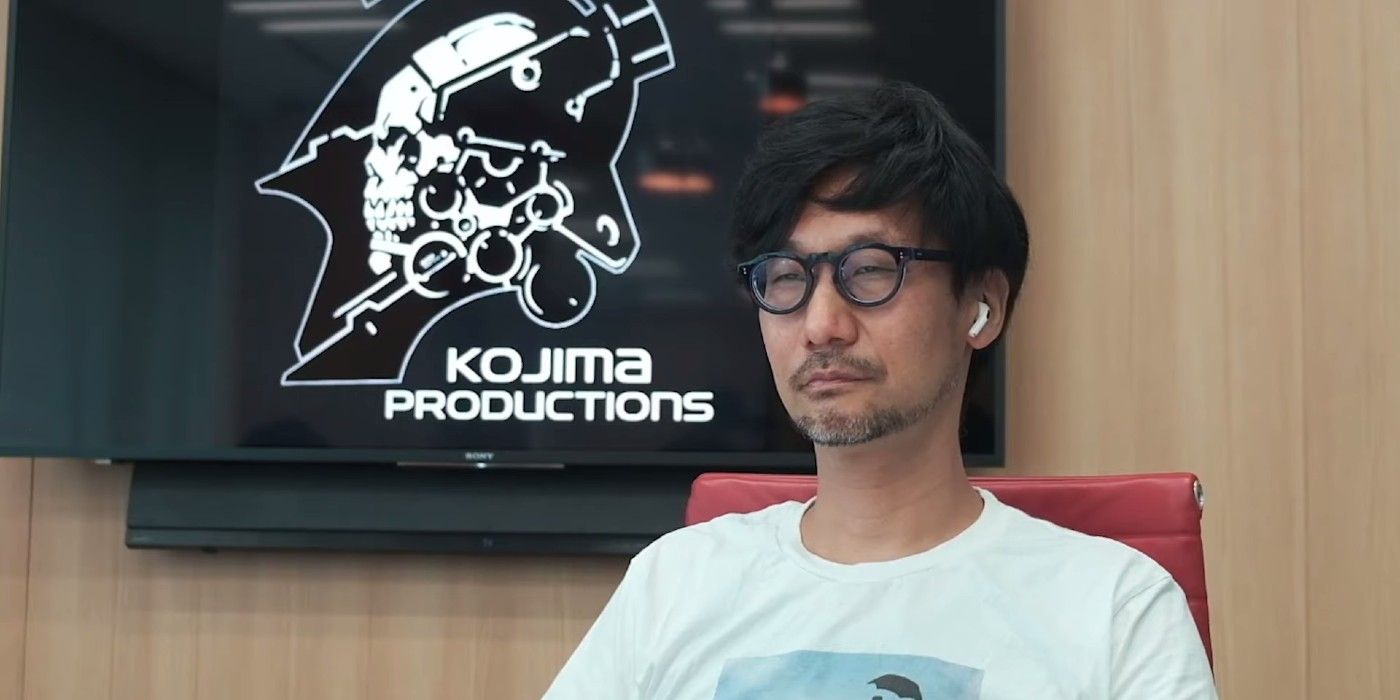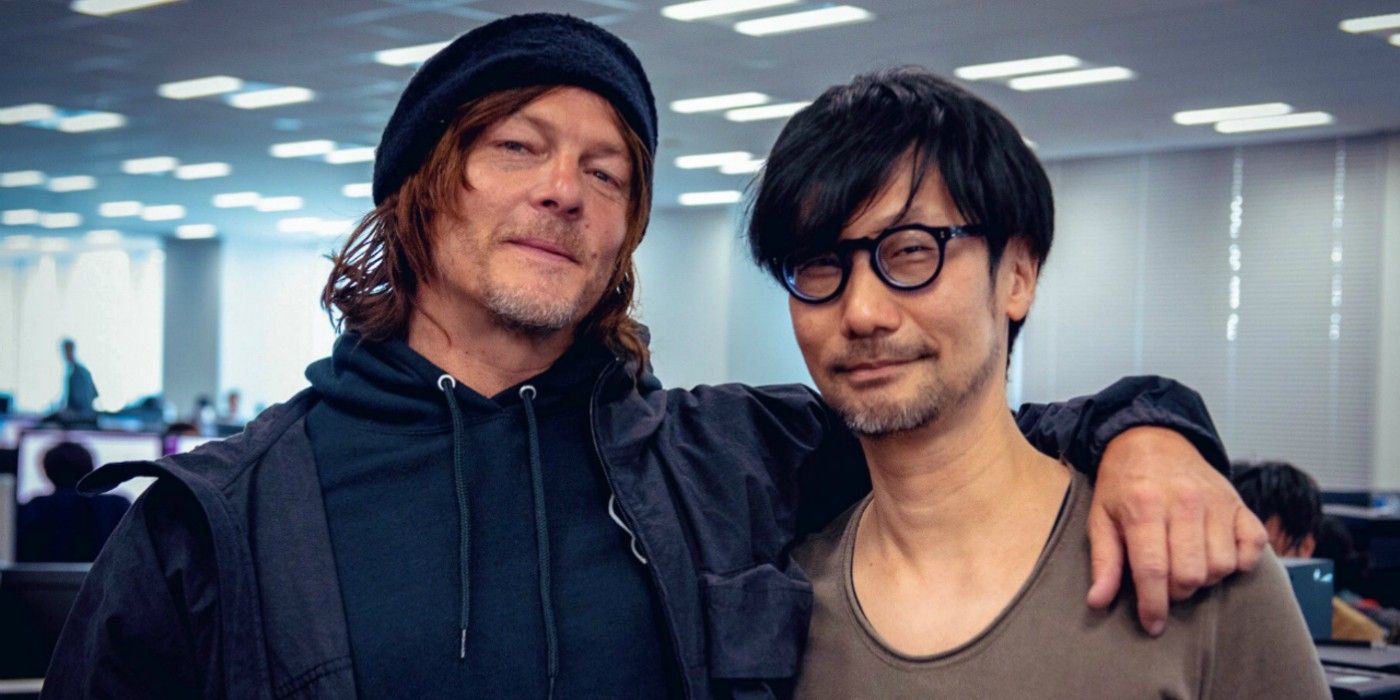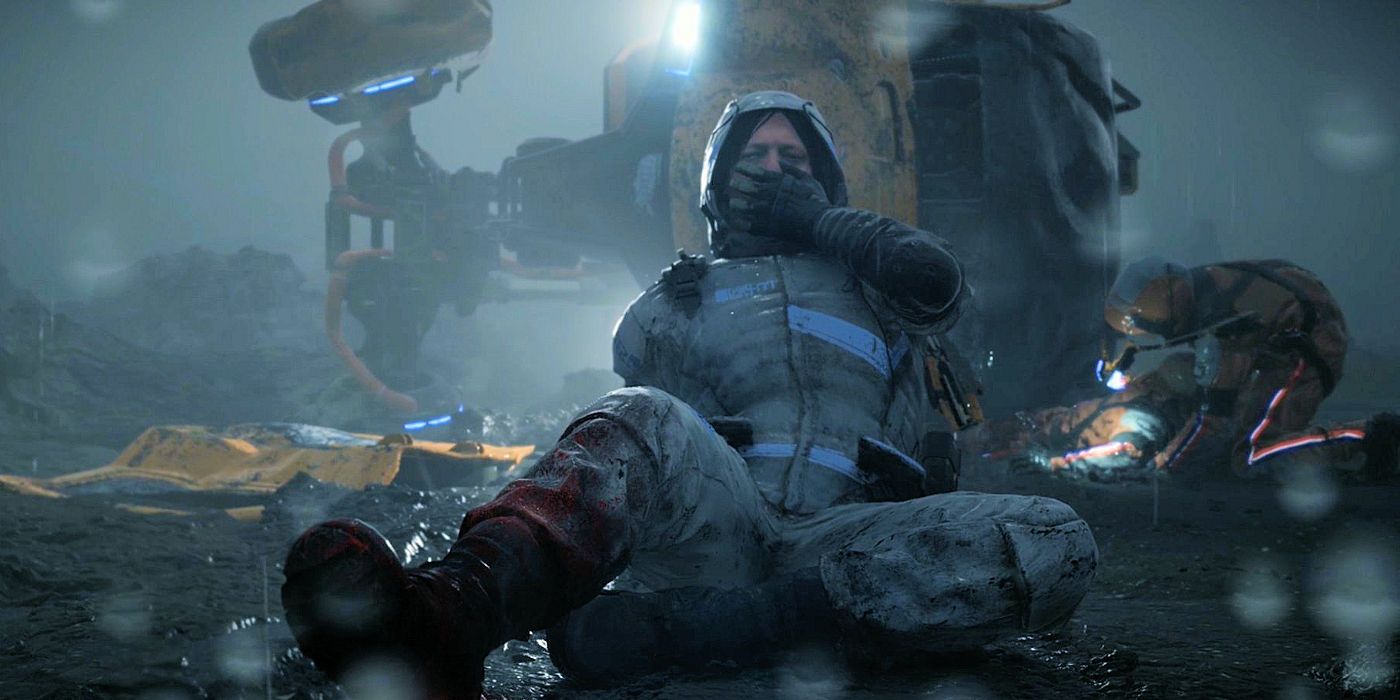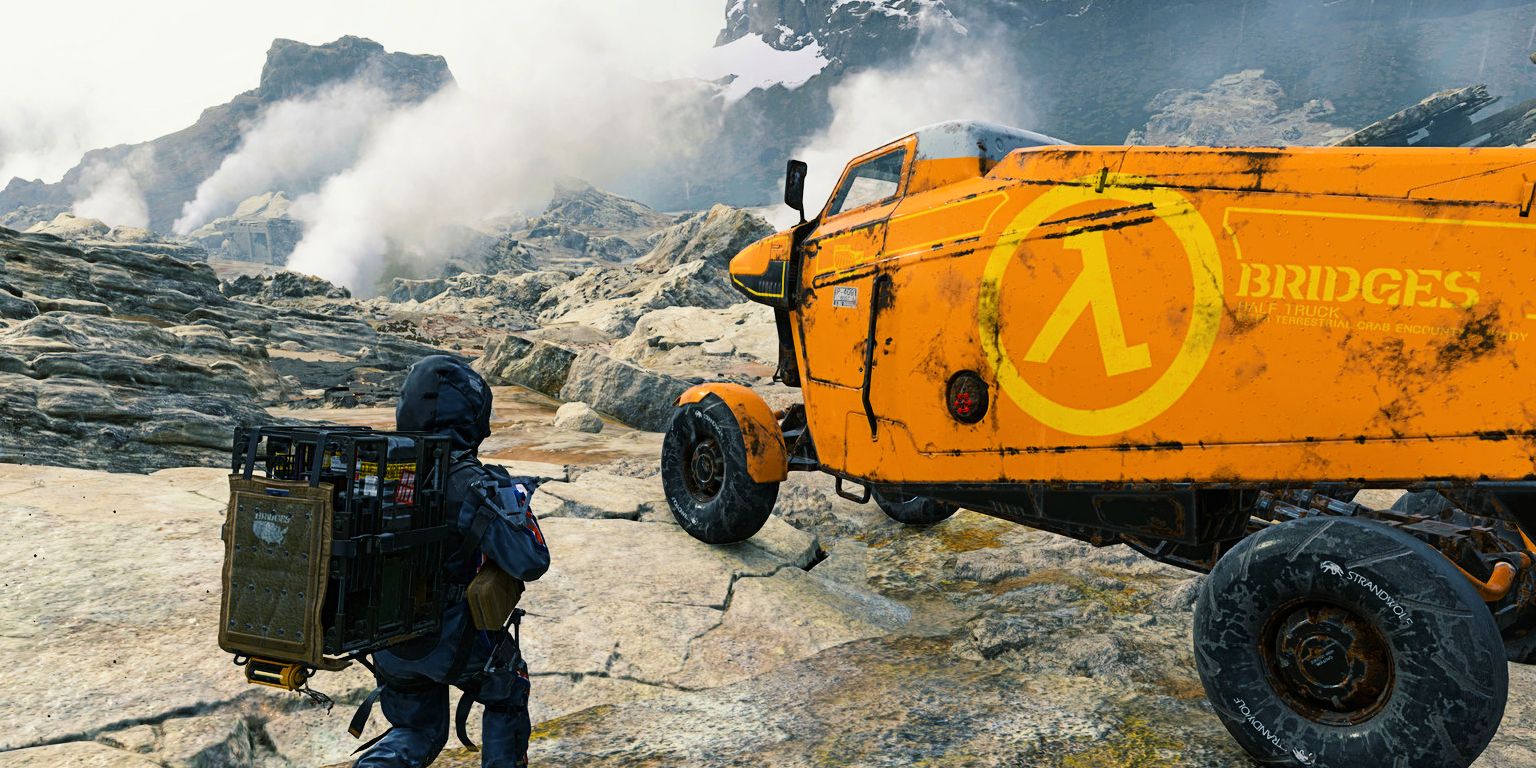
Kojima Productions, founded by its namesake Hideo Kojima, just announced that it is opening a film, television, and music division located in Los Angeles. Kojima Productions has led many projects under Konami, but it has only produced Death Stranding and its Director’s Cut since its separation. The studio has a promising team and background, given that Kojima himself has led production, direction, and writing on the entire Metal Gear Solid franchise and has worked in conjunction with Guillermo Del Toro to create P.T. as well. A studio that focuses on more than video games could mean more projects from the up-and-coming production house.
Similar to the way film studios have game divisions, this new effort by Kojima Productions may be an attempt to expand to a multimedia-focused strategy that can support large worlds fans will continually be drawn to. Death Stranding's strange Blade Runner-esque director's cut and Metal Gear Solid show that Kojima enjoys the world-building aspects of the narrative, so creating more projects that take place in these universes definitely feels natural. The biggest question is how it will affect the output of Kojima Productions.
With films, television shows, and music being large focuses, it might seem like attention is being drawn away from video games, but this most likely isn’t the case. At its heart, it’s still a video game developer and gaming is still the company’s main goal. It advertises its mascot as a “homo luden,” a phrase it derives from the latin root “to play.” The company’s statement calls out the fact that it will still be working with game developers, which means that this new studio will still give PC and console users new and exciting games. The approach Kojima Productions might be taking is one that not only gets to create new projects like Kojima's rumored Sony-backed Silent Hill game, but signs, funds, and collaborations with other studios and artists to make its games better.

One of the most interesting features of Death Stranding is its cast made up of numerous celebrity cameos. The most obvious is Norman Reedus playing the main character, Sam Bridges, but Kojima also included directors and actors from all forms of media. Nicholas Winding Refn, the director of acclaimed films such as the Pusher trilogy and Drive, shows up as Heartman, while Léa Seydoux, one of the lead actresses in Blue is the Warmest Color, plays Fragile. In addition, the soundtrack is packed with star power, with tracks from Chvrches, Major Lazer, and The Neighborhood. It makes the game more approachable and definitely gives Kojima Productions a more professional and cinematic feel.
Kojima has already established himself as a director that loves to work with major actors as well as up-and-coming arthouse stars, so establishing a division of Kojima Productions focused on film and TV in Los Angeles may be a way to make it easier for those artists to participate in the production of new games. Death Stranding’s motion capture technology may be technically impressive but does require those stars to travel to Japan to get those shots. With a Los Angeles studio space, Kojima Productions might be able to draw the attention of and collaborate with more creatives without the need for in-person visits to the Tokyo studio.

Death Stranding is Kojima Productions’ only self-published game to date, and it had a fairly long production cycle, being announced in 2016 and released in 2019. However, the game has so much backstory to be mined and there was obviously thought put into every aspect of the world - from Bridge Babies to Timefall to each NPC quest and each piece of character backstory. If Kojima Productions created the sequel to Death Stranding that Norman Reedus teased, it could definitely work with other artists to help flesh out these details and capitalize on their story possibilities.
Working with smaller game developers as well as television studios to create original content for Death Stranding’s universe could expand its reach and let the studio put out a more consistent stream of content. Like with its Timefall soundtrack, allowing different artists to create their own takes on the world could give the games more depth and thematic diversity for fans to enjoy. Spin-offs by renowned directors discussing the past of the United Cities of America or Fragile's backstory with more detail could make for interesting games with different genres, character arcs, and gameplay additions.

Although Kojima Productions is working on an unnamed project that could not be related to Death Stranding, the games having cross-promotional aspects could generate hype. Original stories are always a riskier venture than trusted brands, but with the PS5 reveal trailer focusing on new IPs and many studios looking for something new, it seems like Hideo Kojima and his team will need to take that risk to keep up with the competition. For Kojima and his studio, producing multiple projects based on new projects could get more people comfortable and familiar with the strange aspects of their worlds. Death Stranding and Metal Gear Solid are both projects with lots of unusual elements. Moving forward, it would make sense that any new franchise the studio develops in the same vein could explain confusing elements through music or television shows, which could make it more accessible and attract a wider audience.
Kojima hiring more artists to create side stories and multimedia projects for his games might be a move similar to how Riot Games’ recently branched into film and television. Increasing awareness of Kojima Productions’ projects through music, film, and spinoffs could help it find new audiences and bring more people to these games. Standalone side projects for Hideo Kojima's next theorized game could also get people who don’t play video games familiar with Kojima Productions.
Kojima Productions is in the interesting situation of being a critically acclaimed name in the gaming space without having many projects under its belt. Even its Los Angeles studio hasn’t announced any projects. Since it doesn’t have a great foothold in other entertainment industries just yet it will still have to focus primarily on making games with the auxiliary multimedia projects coming second. The gameindustry.biz press release makes it clear that Kojima Productions will continue to release games and that all its side projects will be released in service of the games’ worlds and not the other way around. Even with Hideo Kojima’s interest in American film and television, his production studio is still a game developer. For now, this move is one that will likely help the studio’s reputation as well as the quality of its games.
Breaking down the walls between gaming and film like Riot Games did successfully with Arcane might allow for projects developed in tandem – rather than adaptations being made like Warcraft or Resident Evil: Welcome to Raccoon City, they could be original works that contribute to the stories’ canon. Perhaps later down the road, the studio can let artists develop their own visions and move beyond only promoting and developing Kojima’s ideas. His willingness to work with beloved directors and actors who don’t get as much recognition as Norman Reedus could mean that Kojima Productions' Los Angeles studio becomes an incubator that lets those creators develop their ideas with high budgets that might not be produced by anyone else.
Source: gamesindustry.biz
from ScreenRant - Feed https://ift.tt/3I3L0vo

0 Comments